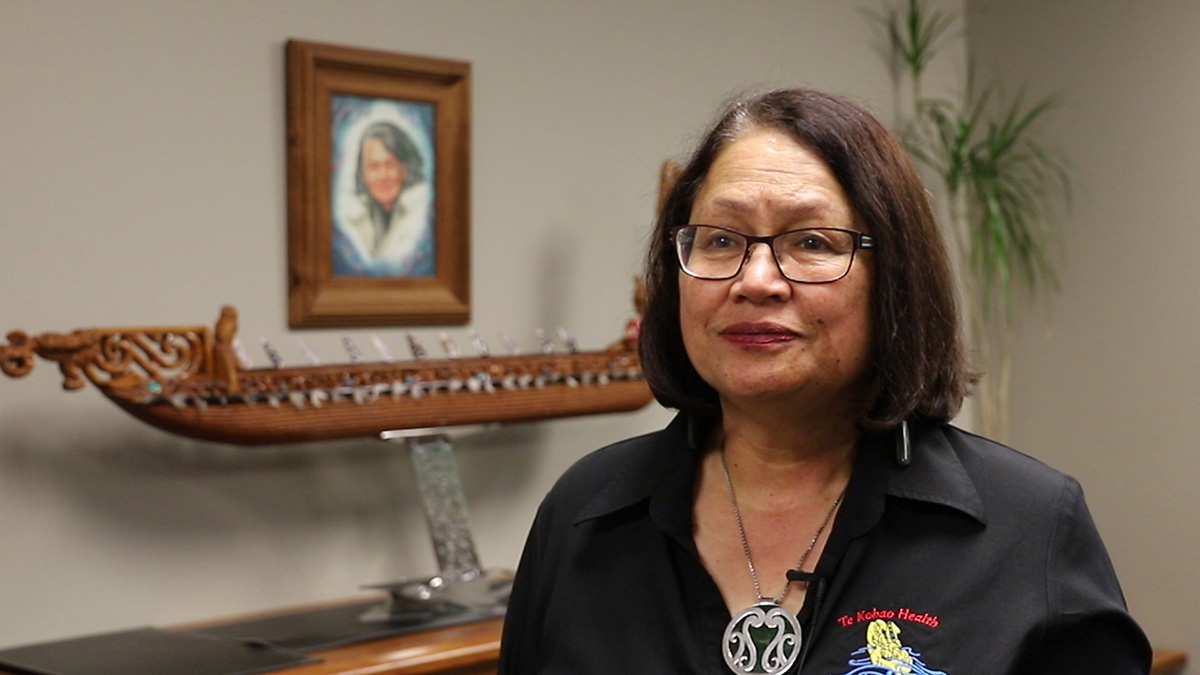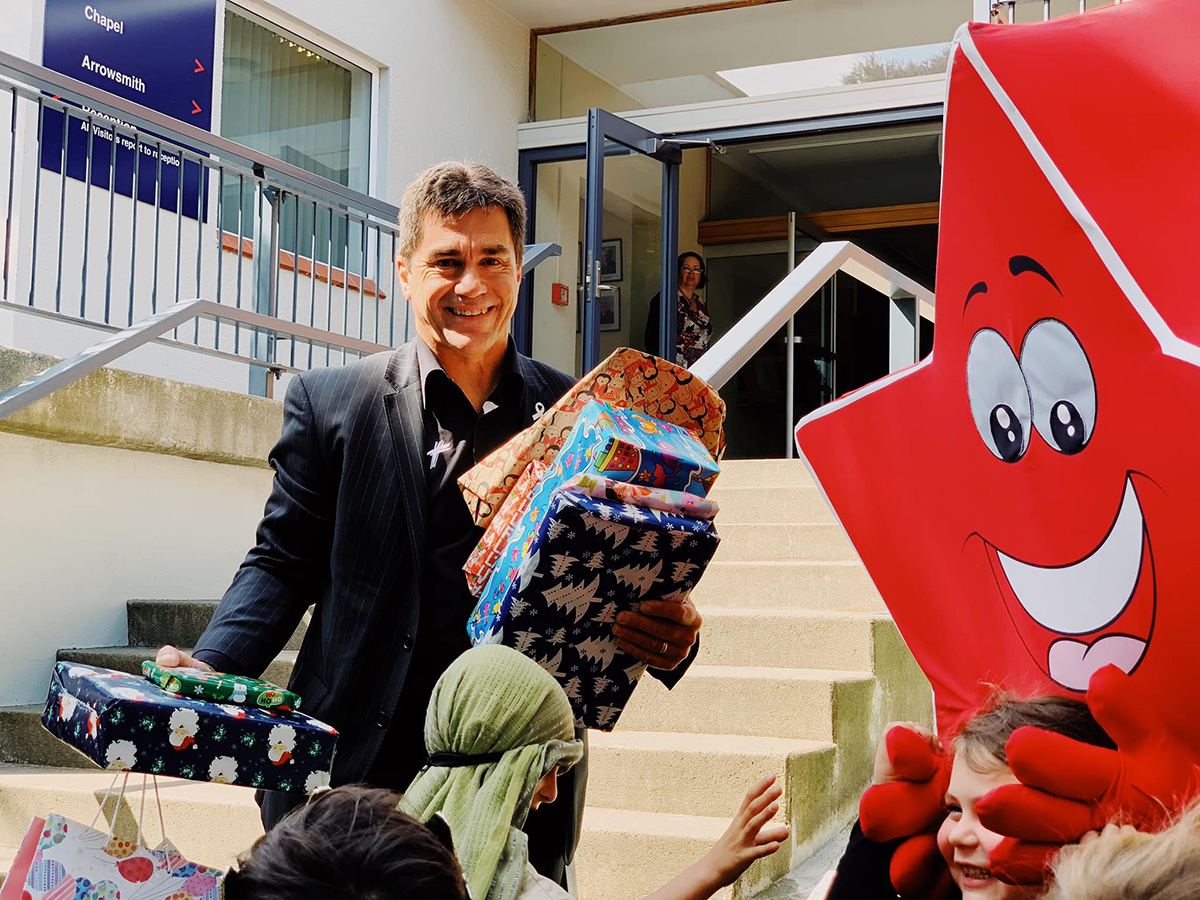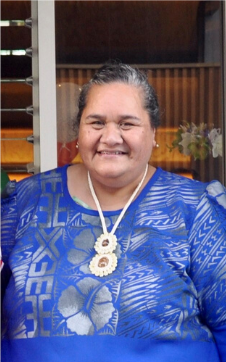As New Zealand escalates its response to Covid-19, panic-buying at supermarkets continues to cause problems. Last week, Countdown reported it sold enough food to feed 10 million people in one day. Monday’s lockdown announcement also prompted a fresh round of frantic shopping at supermarkets. Teuila Fuatai reports on how empty shelves are causing problems for those who are unable to stock up during Covid-19.
Despite the surplus of product leaving stores, some individuals and families are finding it harder to access food. It is among a raft of early problems related to Covid-19 those working with vulnerable individuals and families are grappling with.
Lady Tureiti Moxon, head of Whānau Ora health and social service provider Te Kōhao Health, says for the people they work with “stocking up” simply isn’t an option.
“It seems like everyone is going nuts around that - but beneficiaries can’t, low income whānau can’t. And it makes it hard when you turn up [to the supermarket] and the things you normally get aren’t there.”

Lady Tureiti Moxon, head of Whānau Ora health and social service provider Te Kōhao Health
The problem is indicative of population-wide impacts of flu pandemics. Research shows socio-economic factors, including underlying health conditions, low income levels, job conditions and accommodation settings – which determine if physical isolation is even possible - contribute to the disproportionate impacts of diseases like Covid-19 in poorer communities.
Those at the margins of society, which include higher numbers of Māori and Pasifika, do not do well when things “get even harder”, Moxon says.
The Waikato-based provider is doing its best to ensure whānau are prepared for coming weeks. While it will continue to operate alongside other essential social service and health providers, changes to its services may occur to minimise risks around Covid-19.
Contacting vulnerable whānau to check how well equipped they are is a key focus, Moxon says.
“We’ve been making sure that we get the right information out there and making everyone aware of what is happening because there’s a lot of fear and anxiety around the situation.”
Hardships associated with the regular upcoming flu season and winter months must also be addressed, she says.
“We’re focusing on practical things. If they’ve got cold houses and can’t afford heating because power costs too much, we’ve been looking at getting blankets or even thermal underwear. [And] other things like making sure there’s curtains on the windows and sourcing firewood if there’s a fireplace.”
Similar preparations are underway at the Wellington City Mission. Addressing problems around access to grocery products caused by panic-buying has been part of the early Covid-19 response, City Missioner Murray Edridge says.
“The people we work with aren’t the ones panic-buying because they can’t afford to do so.”
- Wellington City Missioner Murray Edridge
“The irony though is they’re being negatively impacted because sometimes, they’ve found when they go to shop, there’s only premium brands left because everything else has been cleared out.
“They’re then in the position where they can’t afford to buy the product,” he says.

Wellington City Missioner Murray Edridge
Pre-pandemic, about 500 people come through the mission’s doors each day. Demand for its services, which include food parcels, hot meals, transport support and transitional housing, are expected to increase because of the financial impacts of Covid-19. When Edridge spoke with us on Monday, a range of options were being considered to ensure support continued throughout the lockdown.
“We may have to make decisions about closure of services, but we won’t stop anything we’re doing,” he stresses. “What that means is we’ll find an alternative means of delivery.”
Central to that is ensuring those who rely on their services stay in contact, Edridge says.
“A lot of the things we do, like distribution of food and provision of foods - only some of that’s about food. The rest of it is about social contact and interaction.
“The risk is of course that in this new world we’re living in, it may be fine for people to self-isolate, but then there’s issues if people struggle with loneliness or anxiety or other things. It just accentuates those.”
The organisation is also canvassing options for those who may need to self-isolate but do not have appropriate accommodation.
“What we’ve seen in the community is self-isolation is the most effective and widely-used mechanism to reduce infection and contagion,” Edridge says. “That’s fine as long as you have somewhere to self-isolate.”
“For those who are living in unsatisfactory housing, or don’t have housing at all, self-isolation is a bit of a myth.”
- Wellington City Missioner Murray Edridge
Options are being discussed with both Wellington City Council and private property owners, he says.
In South Auckland, Penina Health is working hard to ensure its clients and families understand the seriousness of Covid-19. The Pasifika mental health and housing provider is acutely aware of the increased risks Covid-19 poses for the communities and families it works with.
Combating inaccurate information which adds to uncertainty and fear is essential - particularly for elderly, chief executive Roine Lealaiauloto says.

Penina Health chief executive Roine Lealaiauloto
For many of the families and communities Penina Health works, the current pandemic is also a reminder of the devastation of last year’s measles outbreak in Sāmoa - which resulted in more than 80 deaths. Misinformation and a lack of clarity added to pain and confusion for families - here and in Sāmoa, Lealaiauloto says.
Outlining safe practises and communicating up-to-date information from reliable health sources like the Ministry of Health is top priority throughout Covid-19, she says.
“Across the board, everyone’s worried,” Lealaiauloto says. “However, there’s a mixture to what that actually means. Some think it’ll pass like other illnesses, then there’s others who are very worried - maybe about their kids or their parents.”